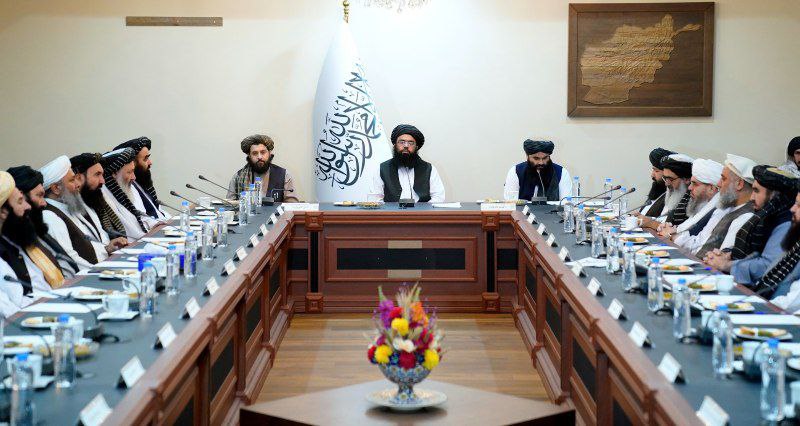As drug trafficking and production continue to pose major concerns for Afghanistan’s neighbors, Taliban on Saturday announced the formation of a “High Commission for Combatting Narcotics and Alcohol.” The commission will be led by Taliban’s deputy chief minister Abdul Kabir.
During a meeting to mark the commission’s launch, Taliban officials claimed to have conducted 87,000 anti-narcotics operations over the past two years, resulting in the arrest of nearly 20,000 individuals on charges of drug trafficking and sales.
According to the Taliban, 122,000 drug addicts are currently undergoing treatment, and approximately 37,000 hectares of land have been cleared of drug cultivation. The group also claimed that 450 drug and alcohol production facilities had been destroyed, along with six thousand tons of narcotics.
The event was attended by senior Taliban officials, including Sirajuddin Haqqani, Amir Khan Muttaqi, and Yaqoob Mujahid.
Amir Khan Muttaqi, the Taliban’s foreign minister, stated that the group is not only fighting drugs but also addressing human trafficking and other illegal activities. Sirajuddin Haqqani, the Taliban’s interior minister, described narcotics as “a threat to all of humanity” and emphasized that the group faces significant challenges due to limited resources and equipment.
Haqqani also called for international assistance and the unfreezing of Afghanistan’s assets by the United States, asserting that these funds could be used to help farmers and create alternatives to drug cultivation.
Meanwhile, Noor Jalal Jalali, the Taliban’s health minister, claimed that 14,000 addicts have been treated so far.
Abdul Kabir, the commission’s head, boasted that under Taliban rule, “the cultivation, production, and trafficking of drugs in Afghanistan have nearly reached zero.” The Taliban also urged the international community to provide support in replacing poppy cultivation with alternative crops.
However, while the Taliban touts a reduction in poppy cultivation, the United Nations has recently expressed concerns about the lack of viable livelihood alternatives for Afghan farmers.





